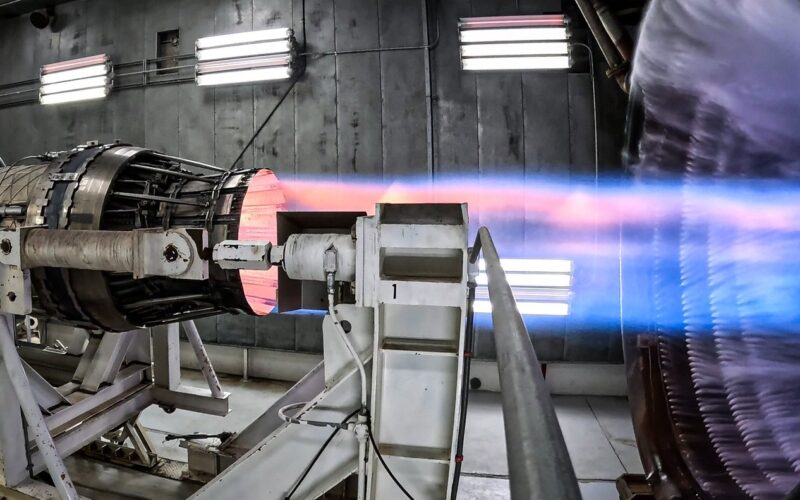Hermeus has partnered with Pratt & Whitney to conduct testing of its advanced precooler technology with the F100 engine.
This technology aims to enhance the maximum speed of turbine engines by lowering the temperature of incoming air. The testing, which takes place at the Edwards Air Force Base in California, seeks to gather crucial data on the performance of the F100 engine equipped with Hermeus’ precooler technology under various operational conditions. This data will lay the foundation for further assessments simulating high-Mach flight conditions.
“Hermeus’ turbine-based combined cycle (TBCC) engine, named Chimera, is a full-range, air-breathing hypersonic engine combining a turbine with a ramjet,” the company explained in a statement. “At low speeds Chimera operates in turbine mode with the F100 engine, while at higher speeds the engine transitions to ramjet mode. The precooler helps bridge the gap between these two modes of operations by increasing the performance of the turbine.”
The Quarterhorse Mk 2 aircraft, set to integrate the precooler-F100 engine combination, is expected to achieve speeds exceeding Mach 2.5. Future iterations, such as the Quarterhorse Mk 3, will leverage the full Chimera engine, including the ramjet component, enabling speeds approaching Mach 4.
Hermeus is developing hypersonic aircraft for defense and commercial applications. In August 2020, it signed a partnership with the United States Air Force (USAF) to deliver hypersonic travel as a potential solution to Air Force One transportation.
In March 2024, the Quarterhorse Mk 1, Hermeus’s inaugural flyable aircraft, was publicly revealed, powered by the General Electric J85 engine. It is anticipated that the Quarterhorse Mk.1 will undergo its maiden flight trials at Edwards Air Force Base later in 2024, including high-speed take-offs and landings.

